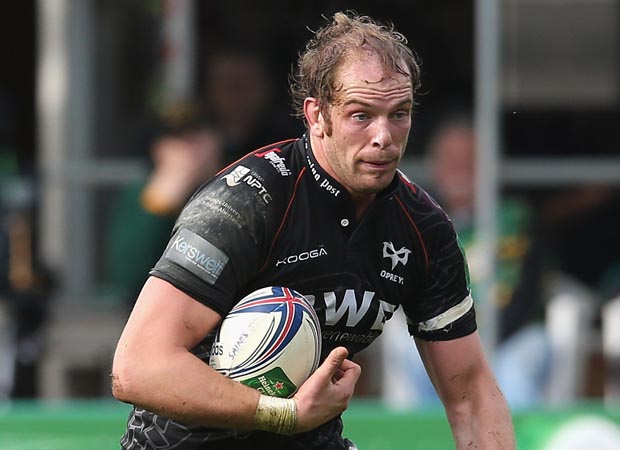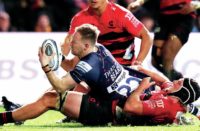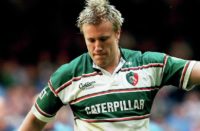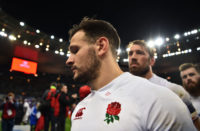 At the height of summer, their players were left to wonder whether they still had jobs to go back to and, if so, who would pay their cheques. Not for the first time, director-benefactor Rob Davies averted an Ospreys crisis, bridging the wage gap caused by the Welsh Rugby Union's inexcusable failure to settle the damaging conflict with their four Regions until days before the season began.
At the height of summer, their players were left to wonder whether they still had jobs to go back to and, if so, who would pay their cheques. Not for the first time, director-benefactor Rob Davies averted an Ospreys crisis, bridging the wage gap caused by the Welsh Rugby Union's inexcusable failure to settle the damaging conflict with their four Regions until days before the season began.
By then four more of their Lions had followed the lengthy exodus of internationals out of Swansea. Even Adam Jones, left stranded in an embarrassing state of limbo by the political wrangle, lost patience before deciding that the grass would be greener at Cardiff Blues.
The Ospreys grand scheme for rejuvenation from within, as designed by chief executive Andrew Hore, demanded that they had already been planning for life after their 100-Test tight-head. They did so in the belief that props such as Aaron Jarvis and Nicky Smith could not be held back.
Jones, distracted by the fleeting promise of a central contract dangled by the WRU, was still wanted by the Ospreys. His market value may have dipped but his ex-employers showed how much they cared by paying him a month's wages after his contract with them had expired. Maybe by then he had seen the writing on the wall.
Richard Hibbard had gone to Gloucester, Ryan Jones and Ian Evans to Bristol. In a period of three years, a total of 20 capped Ospreys had flown the coop, the aforementioned Lions quartet plus Tommy Bowe, Aled Brew, Jerry Collins, Kahn Fotuali'i, Marty Holah, James Hook, Shane Williams, Nikki Walker, Mike Phillips, Tavis Knoyle, Craig Mitchell, Tom Prydie, George Stowers, Jonathan Thomas, Paul James and Matthew Morgan.
The vast majority went because they got better offers elsewhere. The Ospreys, of course, had used the chequebook with the best of them but the onset of a deeper recession forced them into a radical change of policy.
Instead of splashing out on big names, they would turn inside to Ospreylia itself and produce their own from the traditionally fertile nurseries of Swansea, Neath, Port Talbot, Bridgend and most points in between.
This morning, the new largely home-spun Ospreys top the Pro12 with five wins out of five. When they beat Munster at Thomond Park last weekend, they did so with a 23-man squad built on 19 Welsh-qualified players.
Of those, 12 are native Ospreylians – Dan Evans, Eli Walker, Dan Biggar, Rhys Webb, Nick Smith, Scott Baldwin, Alun Wyn Jones, Justin Tipuric, Dan Baker, Duncan Jones, Martin Roberts and Sam Davies.
The starting XV responsible for storming what used to be the most forbidding fortress in Europe had an average age of 25 and just one over-30, Joe Bearman. The bench featured a substitute even older than the evergreen Cornishman, Duncan Jones, a founder member of the original Ospreys' cast still going strong in his 37th year.
A whole host of other local boys have been rolling off the assembly line – Morgan Allen, Tom Grabham, Tom Habberfield, Ben John, Sam Lewis, Lloyd Peers, Ross Jones, Tom Smith, Marc Thomas and Dan Suter. Three more – Ryan Bevington, Ashley Beck and Dafydd Howells, internationals in their own right – have been sidelined by injury.
The new Ospreylians would be the first to acknowledge the contributions made by the overseas quartet currently on first-team duty – Canadian wing Jeff Hassler, Cornish centre Josh Matavesi, Moldovan tight-head Dimtiri Arhip and South African lock Rynier Bernardo.
Three months on from wondering where their next pay cheque would come from, the Swansea birds of prey are soaring out among the eagles – five wins out of five, embroidered with a total of 17 tries.
They may not stay there but, for now, the Ospreys are out on their own, blazing a trail. They are there not because of the WRU but in spite of them and that makes their start all the more admirable.
*This article was first published in The Rugby Paper on October 5.



























